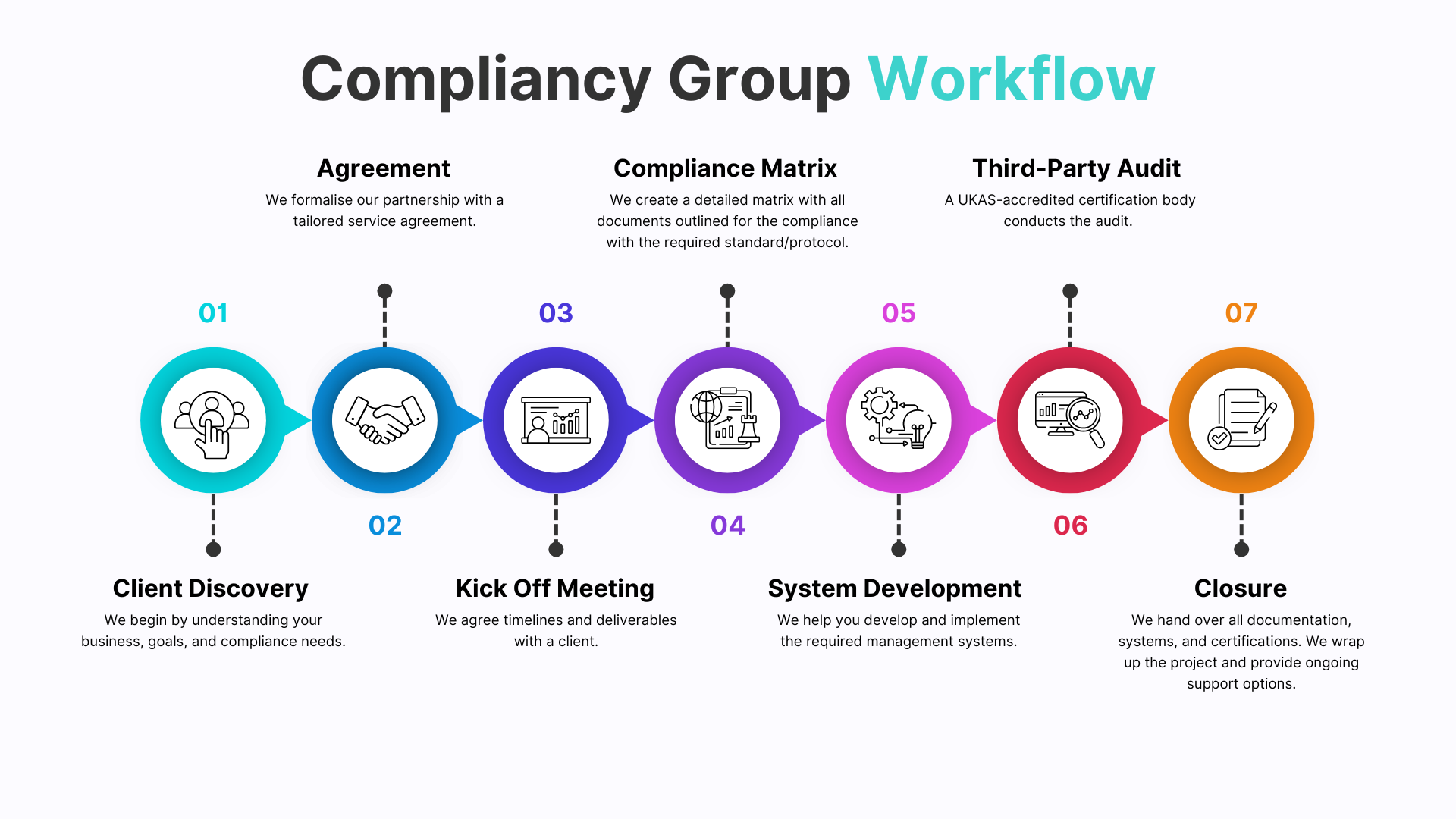We're Here To
Help
A Traceability Audit is a thorough inspection designed to verify your organisation’s ability to track products, materials, and processes throughout the supply chain. Completing a traceability audit demonstrates your business’s commitment to transparency, regulatory compliance, and quality assurance – trusted by clients, partners, and regulators across food, manufacturing, and distribution sectors. With robust traceability systems, you reduce the risk of recalls, improve response to incidents, and build a reputation for reliability and accountability. Compliancy Group guides you through every step – making traceability compliance clear, practical, and a genuine business advantage.
We understand the complexities of supply chain traceability and evolving regulatory requirements. Our team brings hands-on experience with traceability audits, record-keeping, and industry best practices.
No one-size-fits-all here. Whether you need an initial audit, system improvement, ongoing monitoring, or compliance advice, our services are fully customised to your operations. We offer flexible support packages—from essential guidance to comprehensive on-site consultancy.
We work exclusively with UKAS-accredited certification bodies and maintain a 100% pass rate for compliance assessments. Our clients trust us to deliver results that stand up to audit and regulatory scrutiny—helping you achieve, maintain, and leverage traceability compliance for business growth.
Compliance shouldn’t slow you down. We help you build transparent, responsive supply chains, reduce risk, and improve operational efficiency—so you can focus on your core business.
You’ll work directly with our expert team, including leadership involvement from our CEO. We pride ourselves on responsive communication, clear guidance, and ongoing support throughout your compliance journey.
Demonstrate compliance to secure contracts and reassure clients, partners, and regulators.
Show your commitment to transparency, quality, and legal responsibilities.
Minimise the impact and cost of product recalls or supply chain incidents.
Enhance your standing as a reliable and accountable organisation.
Regular audits and compliance checks foster a culture of ongoing quality and operational excellence.
Strengthen Reputation
From initial audit to ongoing support, our team ensures you’re always prepared and confident.
We streamline compliance processes, freeing up your team to focus on core business activities.
Services are tailored to your specific business needs, not generic templates.
Ongoing support, training, and regulatory updates keep your business compliant long after inspection.
Our 100% compliance pass rate and exclusive partnerships with UKAS-accredited bodies mean you’re in safe hands.

A traceability audit verifies that manufacturing processes comply with regulations and standards by assessing how effectively systems track raw materials and finished products across the supply chain, reducing non-compliance risks.
Yes, food placed on the market must be labelled or identified for traceability. This applies to producers, distributors, and others in the supply chain. Additional rules apply to products of animal origin and sprouted seeds.
Yes, BRCGS Food Safety Issue 9 requires traceability systems to meet all relevant legislation for both the processing and sales countries, including FSMA’s Traceability Rule.
1. Supplier mapping 2. Product traceability 3. Material traceability
Yes, ISO 9001 requires traceability to track the history, use, or location of products or services via recorded identification.
1. Forward to Requirements 2. Backward From Requirements 3. Forward From Requirements 4. Backward to Requirements
ISO 9001 covers traceability in sections on measurement traceability and identification/traceability.
1. Premises Identification 2. Animal Identification 3. Animal Movement (for livestock and poultry industries)
1. Traceability links (requirements to test documents) 2. Test coverage 3. Status tracking 4. Progress indication (planned, in progress, completed) 5. Mapping requirements to ensure all are tested